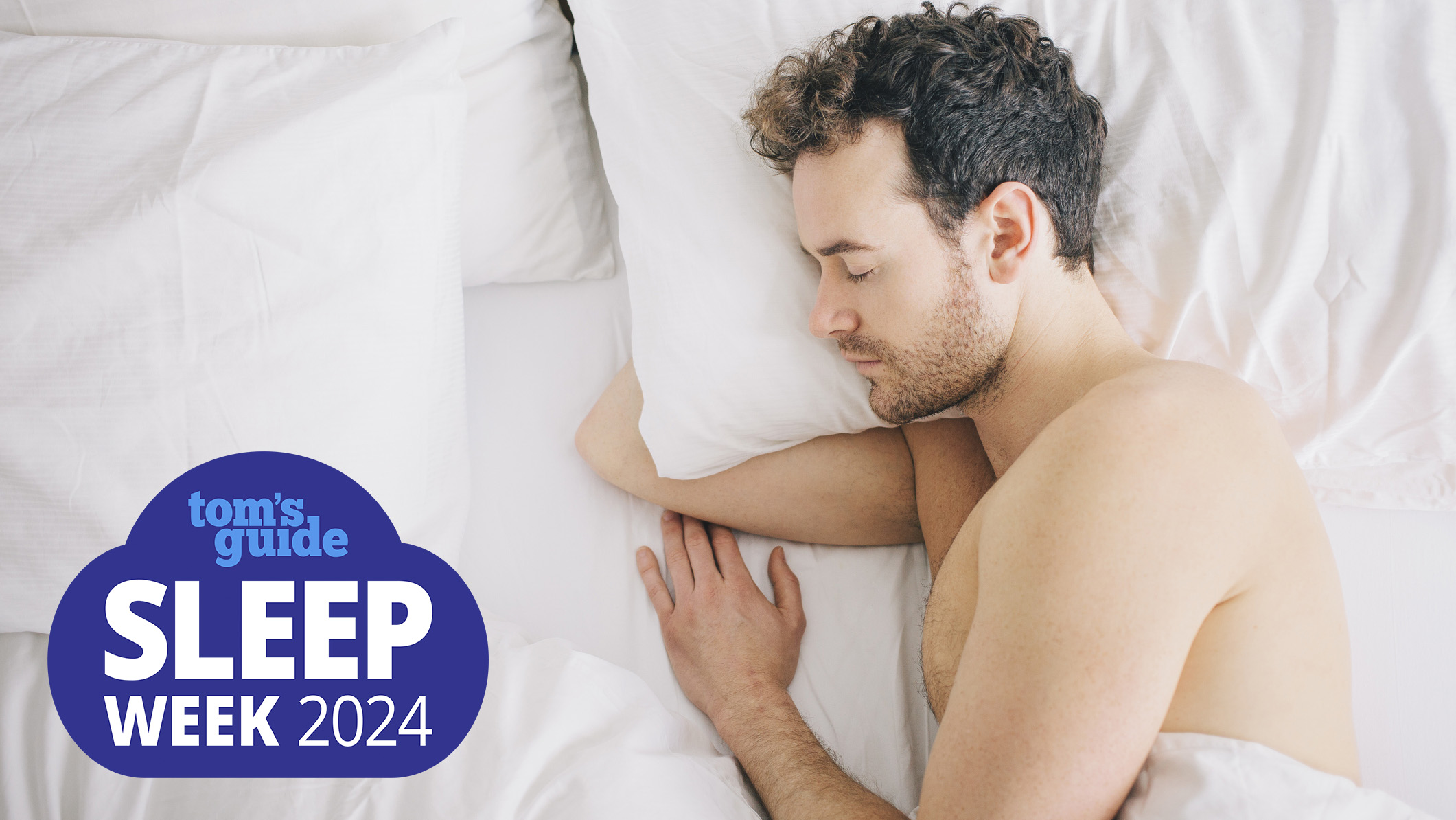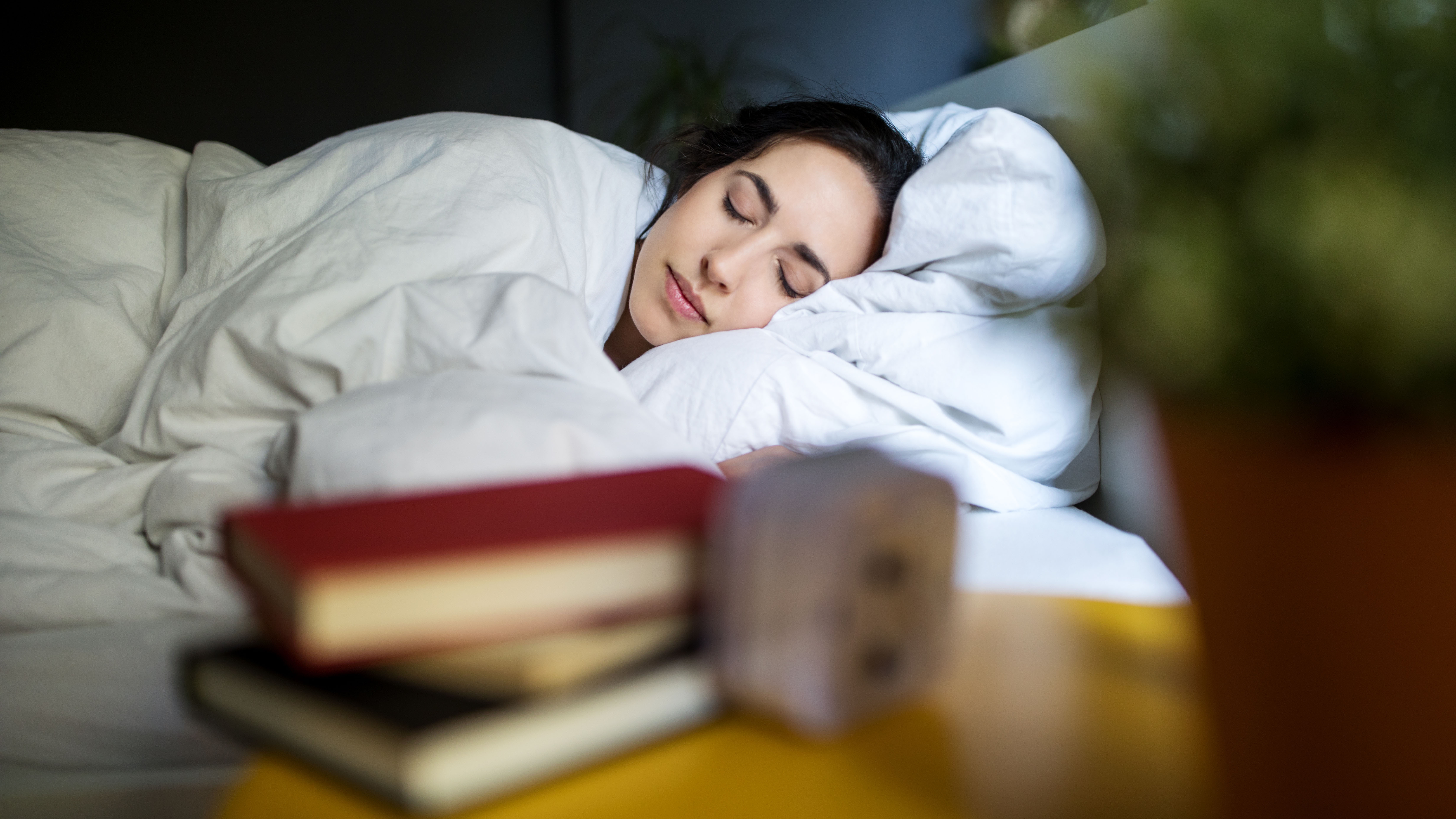
Healthy sleep takes place in four stages per sleep cycle, but which is the best sleep stage overall and why? When we talk about how much quality sleep we’re getting, we tend to focus on the number of hours’ we’ve clocked up each night, but sleep stages are vital to this conversation.
Of course it’s important to have an idea of how many hours you’re getting and most of adults need between seven to nine hours a night. But sleep duration is just one aspect that dictates the quality of our sleep, much like whether or not we're sleeping on the best mattress for our body and sleeping position. In fact, restorative slumber is really all down to the relationship between several key sleep stages that our bodies’ cycle through during the night.
Many of us have heard of REM (Rapid Eye Movement), the ‘dreaming’ stage of sleep, but in actual fact this stage only takes up around a quarter of our nightly rest. “Technically, there are four stages of sleep,” explains Dr Chris Winter, neurologist, sleep specialist, and Sleep Unplugged podcast host. But which sleep stage is the best and why? We find out during Sleep Awareness Week 2024...
What are the four stages of sleep?
When it comes to sleep, we tend to think about it either in terms of being awake or asleep. However, there are four sleep stages and each one serves a vital function in ensuring we get adequate rest. “Poor sleep can affect our cardiovascular system, mood, hormones, blood sugar, weight and cause inflammation... the list is infinite,” explains Dr Winter.
With quality sleep underpinning our overall health, it's important to understand the key role that each sleep stage serves. There are three non-REM cycles and one REM cycle. Here, Dr Winter explains each of them:
N1: This is the transitional period between being wake and falling sleep, and it only takes up around 5% of the night – mere minutes.
N2: Although this is the lightest sleep phase, it’s also the longest and takes up about half of the night. "The longest sleep cycle is known as N2, it’s the second sleep stage, and is actually a light sleep,” explains Dr Winter.
N3: This stage is where our deepest rest takes place, but it only takes up about a quarter of the night, which is around one to two hours.
REM (rapid eye movement): Known as the dream sleep stage, this only takes up around 25% of the night, and is important for maintaining focus, memory and concentration.
What happens in a sleep cycle?
So how do we cycle through the sleep stages and, crucially, what happens in each one? “A sleep episode begins with a short period of N1 stage, followed by stages N2 and N3 and finally to stage four, REM,” explains Dr Allie Hare, consultant in sleep medicine at the Royal Brompton Hospital in London.
“However, we don’t then remain in REM sleep for the remainder of the night, instead we actually cycle between non-REM and REM stages throughout.”
Here, Dr Hare reveals why each sleep stage is so important for our overall wellbeing:
Light sleep
N1 – This is the lightest sleep stage, the period in which you drift off and brain activity begins to slow down.
N2 - This is a deeper sleep than stage 1, but it’s still a light sleep. During this stage our heart rate and body temperature start to fall, and it’s harder to wake someone up during this stage than it is in N1. This stage seems to be important for memory and learning.

Deep sleep
N3 – Deep sleep is crucial for maintaining a healthy immune system and glymphatic system – which is essentially our brain's waste clearance system. It’s also important for creative thinking and problem solving.
“This stage is restorative, it's when our bodies release the most growth hormones and is the sleep that ensures we no longer feel sleepy when we eventually wake,” says Dr Winter.
Vivid dreaming
REM – This is where we have the majority our dreams. It’s unique because during REM our muscles, aside from the diaphragm and eye muscles, are paralysed; the diaphragm keeps us breathing and eye muscles create the rapid eye movements we experience during sleep stage.
This paralysis is thought to be nature’s way of preventing us acting out our dreams. REM is important because the interplay between it and the previous non-REM stages is believed to be important for memory formation and managing our brain's finite storage space.
N3 is the best sleep stage — here's why
There’s no doubt amongst the experts that each sleep stage plays a vital role in our overall sleep quality. “The most repair work is believed to be during N3, the deep sleep stage,” explains Dr Hare.
“Here our glymphatic system gets to work. It’s the vital network that removes waste products in the form of soluble proteins and metabolites from the central nervous system, and it also provides the brain central nervous system with essential glucose and lipids.”

It also supplies our brain with neuromodulators like dopamine and serotonin which help regulate our moods. During deep sleep, the glymphatic system is constantly filtering toxins from the brain, including those linked to the build-up of amyloid plaque, which has been linked to Alzheimer’s disease.
What happens when you skip a sleep stage?
An interrupted night’s sleep can cause cognitive fogginess. “The impact of lost sleep is more broad than simply skipping a sleep cycle,” explains Dr Hare, “So, aside from feeling tired, you might struggle with concentration, short term memory, low mood and, if you suffer from chronic lack of sleep, increased susceptibility to viruses.”
A regular sleep/wake schedule is important for entraining our circadian rhythms so that we can fall asleep more reliably
Dr Hare, consultant in sleep medicine
So how can we ensure we don’t interrupt our natural sleep cycles? “Changing the time you go to bed is not likely to make you ‘skip’ a sleep cycle,” says Dr Hare. “But waking earlier than usual means you may miss some sleep which will tend to be REM sleep, since this is more predominant in the latter half of the night.
"So having a regular sleep/wake schedule is important for entraining our circadian rhythms so that we can continue to fall asleep more reliably and wake up when we mean to."







